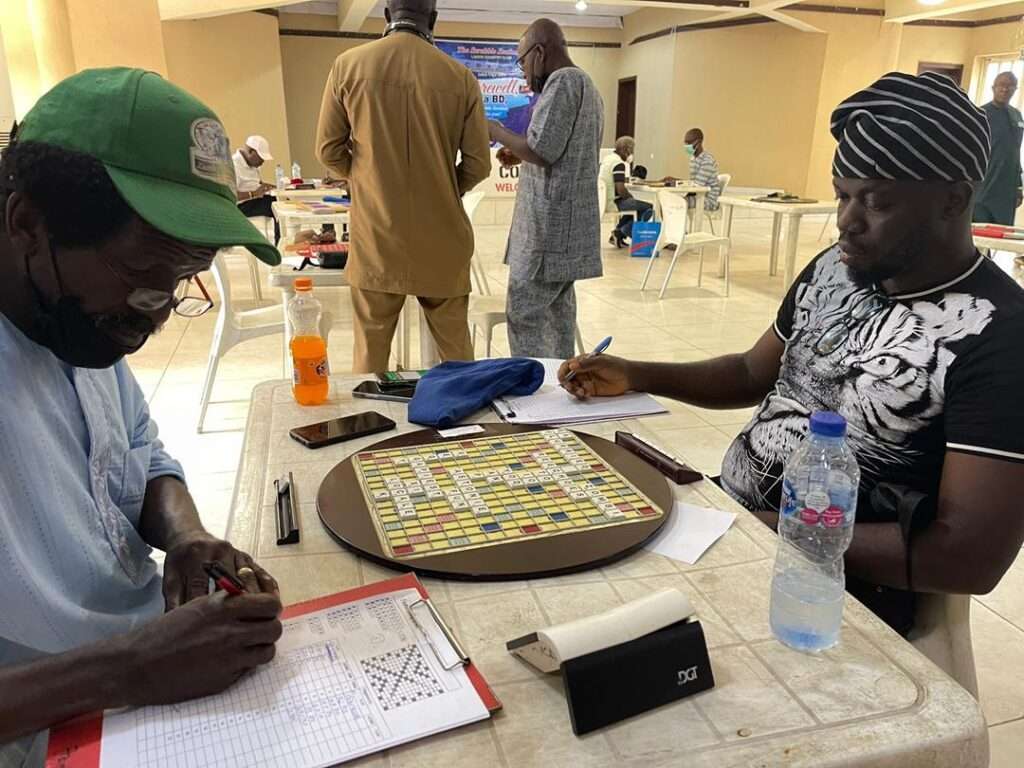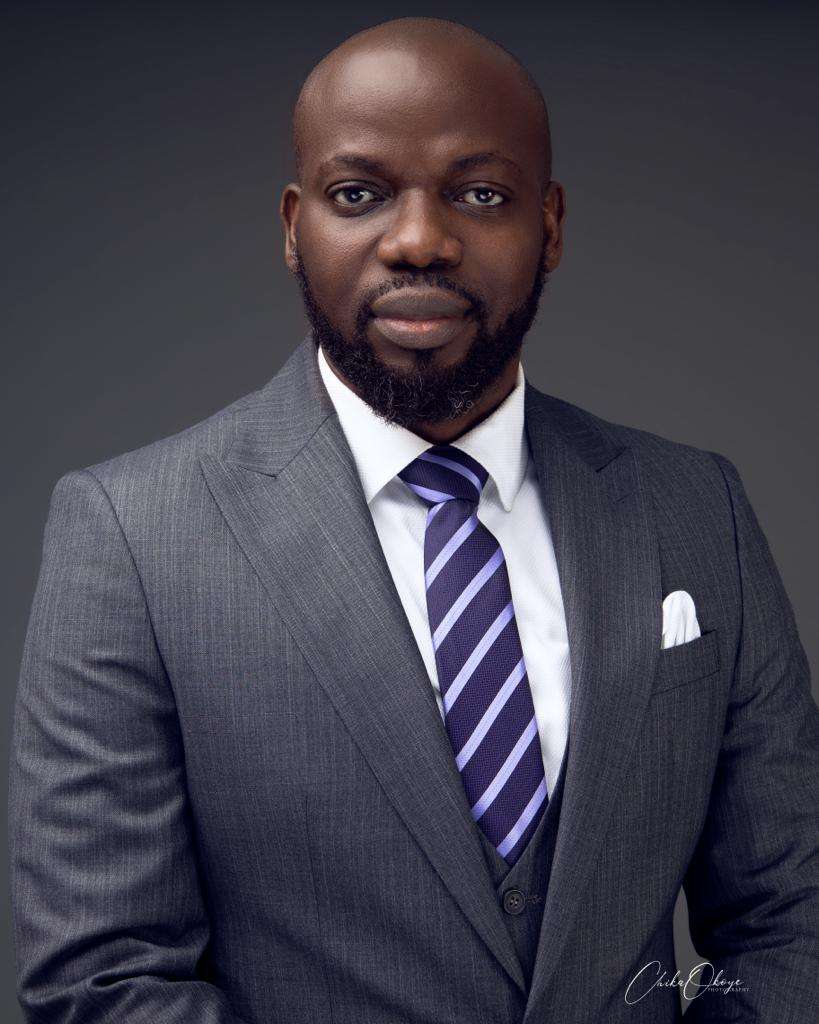Adegboyega Oduwole has been the Secretary General of Lagos Country Club since October, 2020. A Human Resources practitioner with over two decades experience, he joined the club in April, 2013 and has represented the club in many games with several laurels under his belt. He was Captain of Scrabble Section and later Secretary. He was also a Financial Secretary of the section before contesting for the position of Secretary General of the club in 2020.
Why did you choose Lagos Country Club in 2013, above other clubs in Lagos?
I was a senior management staff at my company then, Folawiyo Nigeria Limited. I was a Group Head, Human Resources at the company. And part of the company’s policy was that members of the senior management staff will be registered in a club. So, I have the option of joining Apapa Club, Ikoyi club and Lagos Country Club. Those were the three clubs available for me to join. A member of Lagos Country Club, Mr. Femi Faloye who later became my landlord used to bring me to the club. I’ve been to Ikoyi Club with other people for some time, and I also used to go to Apapa Club almost on a daily basis because my company was based in Apapa. So, you would have thought that I would join Apapa Club. But then, any time Mr. Femi Faloye brought me to Lagos Country Club, I always enjoyed the camaraderie, the togetherness and the way people related with one another. So that made me decide to join the club.
Being a very busy individual, what compelled you to contest for the position of Secretary General of the club?
I’ve always been a leader and I will quickly say something about what I’ve done in and outside Lagos Country Club. I was President of my set in Ijebu-Ode Grammar School for ten years before I left the position in 2018. I was a leader in my church, and also a leader in my community. Like I mentioned earlier, when I joined Lagos Country Club, I was representing the club at tournaments. As a human resources practitioner, at a time I saw the way things were going and I didn’t like the way certain things were being done and I thought within me that I have something to offer to change or improve the lots of general membership of the club. And that was why I came out for the position, having qualified to contest for the position by virtue of my pedigree at my section and at the club.

Do you have heroes among the past leaders of the club that you hope to model your administration as Secretary General after?
Yes, I do. In fact, when I joined the club, there were some wonderful individuals that I met. The Membership Secretary at the time was Mr. Igho Okor, who later became the Secretary General and later the Vice President. The Secretary General at the time when I joined was the gentleman called Femi George and the President was Barr. Wale Osomo. These three people were actually my role models in terms of club administration. They were young guys of about my age at the time. And I loved the way they commanded the affairs of the club during their administration. They were people I looked forward to, emulating and ensuring that I surpass what they did at the time.They played a part in my decision to contest for the Secretary General of the club.
You have been in the saddle since 2020, what has been your achievement so far?
Many. When I was campaigning, I campaigned on the mantra of bettering the lots of the club, ensuring transparency and impacting the organizational framework of the club. That I have done. But I will cite something that looks very simply but has a lot of implications, the industrial harmony between the management and staff of the club. There has been an imbroglio of what looks like dilemma that the club has been into. I am sure that you’re aware of the Federal Government policy on the pension scheme. The club was unable to get itself out of the shackles of the gratuity issue that ensued. Several of the management teams had tried to resolve that issue but they could not. But during my tenure, that has been totally put to rest. We were able to pay gratuity and the staff are happy about it. We also improved on communication. We resuscitated the club’s website. And we have also done some structural renovations in the Arena, the Heineken Bar, the Main Bar. We have also built conveniences for drivers and the rest of them. These are major issues that bedeviled the club at a time and we have been able to resolve all these issues and it has made life better for both our members, the staff and even our vendors.
You have had an illustrious career as a successful administrator with over two decades experience as an HR practitioner. Tell us about life as an HR.
Human Resource is a thankless career. I’ve been an HR for more than two decades. Your job as an HR personnel is to be the middleman between the staff and the management. Many a times, the management don’t trust you. When you are in the management meeting and you’re talking, they believe you’re a socialist. When you are talking with the staff about what management has, the staff too don’t believe you. They believe that you’re a stooge for the management. So many times, you don’t get appreciation for what you do. Everybody believes they can be HR until they try to do it.
Like I also tell people, the work of HR is the work of policeman; enforcement of rules and regulations in a company. If you are doing your work, HR will not give you a query, or sanction or reprimand you. In fact, HR does not issue queries, it’s the developmental managers that do that. But when they issue the query, they will say it’s HR. The departmental heads are the ones that will come to HR and complain about a staff, and if the HR asks them to give the worker a query, they tell you no. They will go back to the worker and say HR said I should give you query. So, you can see the way they treat HR. But I must say that it’s a very rewarding career at the same time, because it gives you the opportunity to think twice. This is what humanity is all about. I instruct people to do their jobs, I ensure people progress in life. It’s a job that gives you joy when you see that you’re able to impact people. The joy you feel when you see a person whom you nurture to grow is the reward really because that tells you that you’re doing good. That’s the reward for HR. The fact that you can change and impact lives. So, it’s a very rewarding career.
In the last ten years, how has personnel management in both public and private sectors fared in Nigeria?
I will answer that question carefully. The private and public sectors are on different levels entirely. Now the private sector is driven by capitalism while the public sector is driven by democracy. We need to understand what’s happening. In the public sector, human resources which you called personnel management is done on a political scale. There is always a quota, there is always a time for promotion, and there is always a set of people that will be promoted at the same time. The rules and regulations are adhered to based on the person that is occupying a space not based on the structure. In the private sector, it’s not the same. The private sector is driven by meritocracy. The word of the head of the organization is a law in the private sector.

So, when the MD/GMD, in a private company issues a directive on where to go, that’s where everybody will go. If you don’t go in that direction, you’ll lose your job. So human resources in that kind of setting is meritocracy and target-driven, based on what one has done. In the public sector, you have a political godfather that dictates what should be done. I once attended a workshop where the Director General of NECA told us that for you as HR to issue a query to a staff in a federal public sector, you have to make 48 copies of that query which you will send to different directors of parastatals for them to see. And before the answer comes, they must have transferred you from the position where you are. Meanwhile in the private sector, if a query is issued to a staff, you have 48 hours to answer the query. Sometimes the answer may be demanded before close of work on same day it was issued.
So, it’s merit and success driven in private sector. And because of that, the tactics of human resources is highly different. It’s more fluid in the private sector and it’s rigid in the public sector. So that’s the major difference. And again, in the public sector, training is used as a means of compensation, while in the private sector training is on a need basis. It’s not used to placate, compensate or to reward loyalty and the rest of them. For them to move from point A to point B, they know that there is a need for training. They look at the gap in each department, so they apply it. In the public sector you only earn training by your grade, affiliation and by the number of yes sirs you’re able to do and all that. I have not worked in the public sector before but I have friends that work there and we relate on a regular basis. And of course, I’ve attended training many times with people from the public sector and we know how things are going on there.

